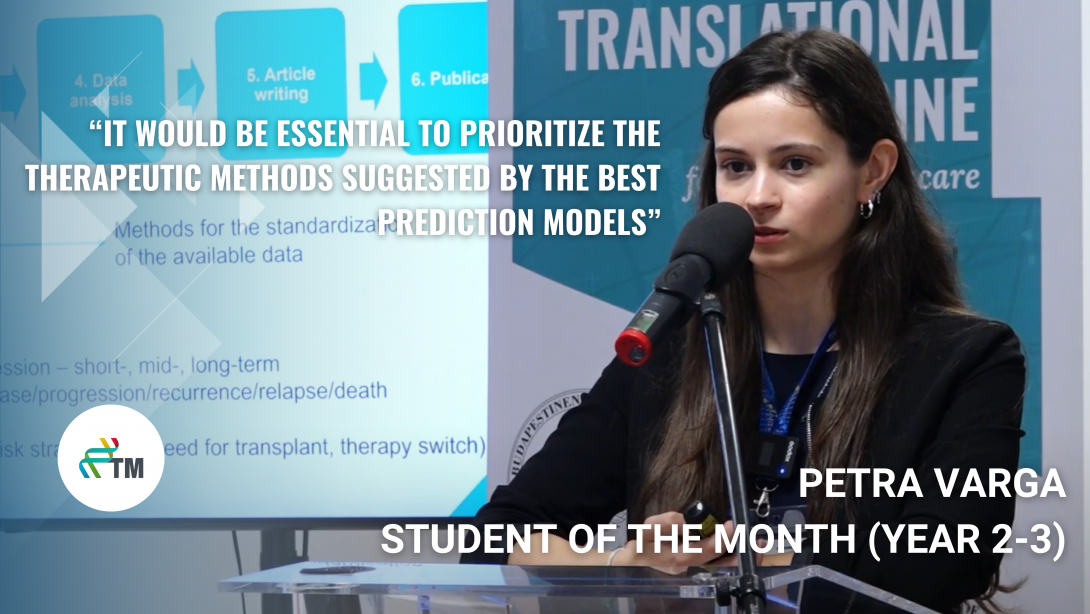
She has exceptional dedication and works hard on a project focusing on the prognosis of pediatric cancer. Her research was published in the prestigious journal eClinicalMedicine - part of Lancet -, and it highlights her commitment to impactful scientific contributions. In October, Dr. Petra Varga was named the Student of the Month (Year 2-3) at the Centre for Translational Medicine.
Dr. Varga graduated as a medical doctor from the University of Szeged and wanted to start her residency right after she got her degree. She had already been doing research during university and did not want to give it up. This is why she was very happy about the opportunity at CTM, which allows her to work as a physician and do research at the same time.“I had previously done research on a different topic. At the Institute of Surgical Research at the University of Szeged, I investigated the positive effects of methane, such as its antioxidant effects. We wanted to clarify whether methane could be produced in living organisms to induce its positive antioxidant effects. We fed mice with mustard-enriched food and proved that they can produce methane in their intestinal tract. The antioxidant effect was tested by giving the laboratory animals alcohol. Our hypothesis was proven by the fact that its negative effects were reduced.”
Dr. Varga already knew that she would like to be a pediatrician before starting medical school, so after graduation she applied for a residency at Heim Pál National Pediatric Institute. She also applied to the CTM Ph.D. program. “It was a happy coincidence that my former mentor, Eszter Tuboly, had returned from her postdoctoral training abroad shortly before, and started working in pediatrics. She became the Head of the Biobank of the Hungarian Pediatric Oncology Network, so I asked her to be my supervisor.” In their first research, Dr. Varga and her mentor compared the prognostic accuracy of prediction models used in childhood cancer. They examined the next-generation sequencing based scores and the artificial intelligence based models. No one in pediatric oncology had ever done such a meta-analysis before
“In our research, we emphasized the importance of prioritizing the therapeutic methods suggested by the best predictive models. Although AI-supported predictions in pediatric oncology are in an early stage of development, it is imperative to further explore their potential. Biobanks and registers should also be developed to improve these prediction methods. This requires structured data collection and ethical sharing from pediatric oncology patients in sufficient quantity and quality.” Dr. Varga's first-authored article on this topic was accepted by eClinicalMedicine, which is an outstanding scientific achievement.
(Emese Szabó)